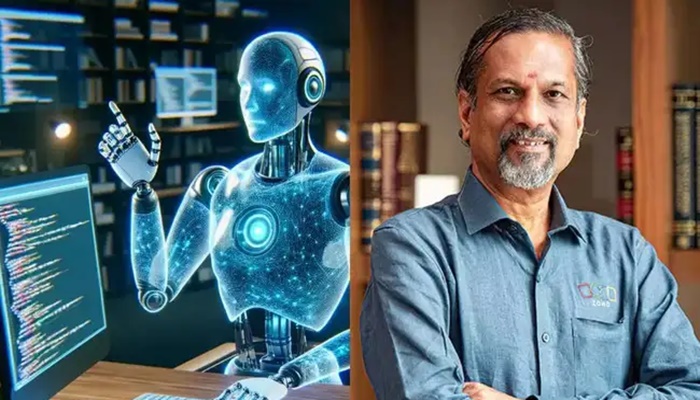In India, landing a job at one of the top 10 IT firms has long been a dream for many engineers. For years, it was almost seen as an equivalent to securing a government job with countless perks and benefits and, most importantly, the assurance of stability with little fear of layoffs. For many, it was the epitome of success.
On the other side of this coin, however, are the comfortable software engineers at IT services companies who have been performing the same tasks over and over again, working with skills that gradually lose relevance. When they eventually face the tough job market, whether due to layoffs or while seeking new jobs, they often discover that the skills they have honed over the years no longer hold value.
A recent Reddit discussion illustrates this well. One developer shared how they spent five years in a tier-2 service company in Tamil Nadu, steadily rising from developer to “tech lead”.
Over time, they started to believe that they were a seasoned engineer. But the illusion quickly crumbled the moment they stepped out and encountered the wider market, where the demands and expectations were very different.
The Reality Check
After spending over five years at a firm, a software engineer went job hunting only to realise that his skills weren’t even at the “basic industry level”. Despite the titles and years of experience, they struggled to keep up with what was expected outside. It took them eight months of relearning fundamentals before they finally landed a new job.
This is not an isolated instance. The IT services industry often relies on software engineers for routine maintenance and testing tasks, while current hiring trends demand software engineers who are skilled in AI. Yet, many Indian IT engineers are just not keeping pace.
Neeti Sharma, CEO of TeamLease Digital, explained to AIM that such cases are common when employees stop investing in their own growth. “Many believe that once they’ve got a job, they don’t need to learn anything new, or that upskilling is their employer’s responsibility. That’s where they get stuck,” she said.
She added that another challenge is the nature of the work itself. Many engineers spend years working on legacy systems, only to realise later that companies they aspire to join are working on completely different stacks.
The gap in skills is further highlighted by the experiences of those with “senior” titles who admit that they never touched system design, scaling or even proper coding standards. One developer revealed that his entire project amounted to little more than a series of “if-else conditions” strung together, with no exposure to meaningful engineering practices.
Meanwhile, some engineers, even after spending five years in the same project, worry about being labelled as ‘senior’ while still possessing junior-level knowledge. This sentiment is also signalled by the recent surge of freshers who are rejecting offers from the Indian IT firms, citing a lack of real value in joining these firms.
These conversations raise a larger question: are a large chunk of Indian IT jobs truly “software engineering”, or are they essentially glorified delivery roles where tenure outweighs technical depth?
“Indian IT services don’t code,” Tanay Pratap, YouTuber and founder of Invact Metaversity, earlier told AIM. “Thirty years of IT revolution in the country, but we still don’t know how to produce coders at scale.”
He argued that even when computer science graduates join IT firms straight out of university, their ability to code remains questionable. “The whole business model [of Indian IT] is about exporting services like testing to global customers,” Pratap further said.
Sharma, on the other hand, offered a more nuanced outlook. “While traditional IT service firms expect developers to just code, maintain and manage deliverables, many others now include design, architecture, automation and even innovation as part of the role,” she said.
In her view, while some jobs may still look routine, the overall direction of the industry is moving closer to the expectations of global firms and startups.
Service companies, especially in non-metro cities, often train freshers just enough to deliver client projects. As long as deadlines are met, nobody cares if the engineer has learned about architecture, algorithms or even why a system works the way it does. Tenure is too often mistaken for experience.
Ultimately, the onus falls not just on the engineers but also on the incentives that these firms offer for the applicants to build genuine coding experience.
Finding a Way Forward
Among engineers, there is an ongoing debate about what constitutes “real” knowledge; whether it is true software engineering or simply keeping up with the latest market trends.
A recurring theme, however, is frustration. Many engineers reveal feeling stuck in jobs where learning plateaus. One such employee described their experience: “I’ve been on the same project the whole time, with Vue.js on the frontend and Firebase on the backend. The application is just full of if-else conditions. I feel like I’m wasting my time.”
According to Sharma, the way forward lies in continuous learning, through certifications, online programmes, open-source projects, hackathons and tech groups. Yet, she stressed that real progress comes from building projects, experimenting with new technologies and exploring high-demand areas like cloud, data engineering, AI/ML, cybersecurity and product development.
“Most importantly, developers need to move beyond just following instructions and aim to solve problems creatively. That’s what will keep them valuable as the industry keeps changing,” she added.
But the problem runs deeper. A large portion of computer science graduates leave college with minimal exposure to coding, making them eligible only for IT services jobs if they do not take the initiative to learn on their own. A recent report by TeamLease Digital indicated that only 5.5% of total engineers possess basic knowledge of coding.
In big tech firms, even when engineers aren’t building distributed systems every day, the exposure to complex problems and rigorous quality standards sharpens their thinking. In many small or service-based companies, the focus is on delivery rather than engineering. This leaves developers with skills that don’t transfer when they try to move ahead in their careers.
The issue isn’t confined to junior engineers alone. Even software engineers who have spent decades working at Indian IT firms find themselves sidelined. A senior tech professional involved in hiring, speaking on condition of anonymity, earlier shared that in Indian IT, after the age of 40, technical expertise alone holds less value unless one is in the right role, the right domain or the right circle. And AI is making the situation even worse.
Engineers often start looking for managerial roles as early as three to four years into their IT careers, which creates a mismatch between their technical needs and their aspirations. While these candidates may excel in managerial tasks, they “struggle with the technical stuff”.
It isn’t just about small companies. Even in metros, IT service firms and captive centres often reduce engineering to task execution. The titles are inflated: developer, senior developer, tech lead, manager. But when these employees compete with peers from product companies or global firms, the knowledge gap becomes obvious.




















